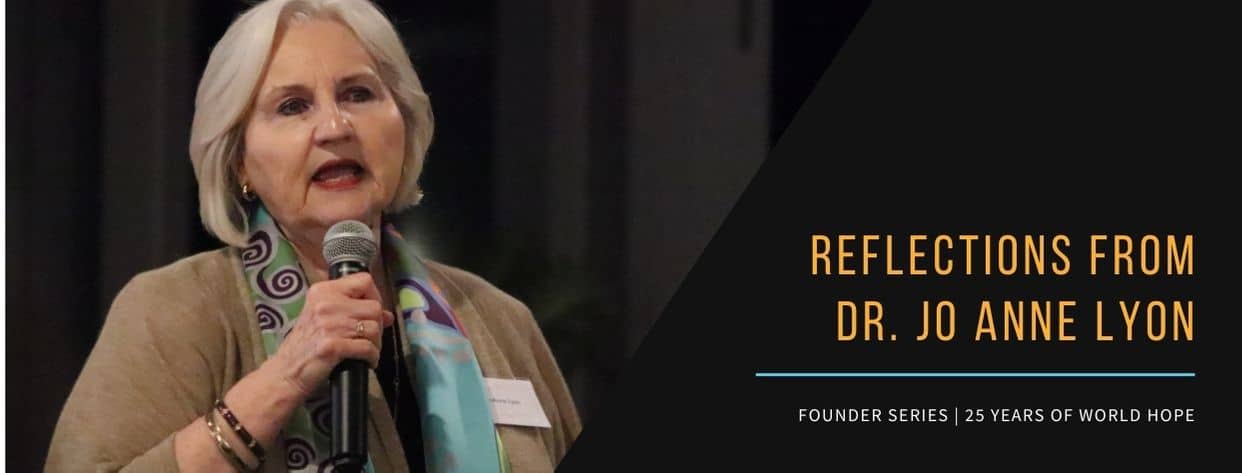
Learning about Lament
Lament seems the opposite of giving thanks. Yet, in recent years there has been much discussion about the power of Lament and how the practice brings about healing and gratitude. In further research, we find lament a form of praise, asking God to act, reminding us of our relationship with God, and entering into the pain of others. There is personal lament and corporate lament.
The first time I participated in a corporate service of lament was in Freetown, Sierra Leone, after a horrific rebel attack on the city during their civil war in 1999. Thousands had lost their lives.
I thought I was going to a memorial service—but not so. The pastor opened with a reading of Psalm 42. This is a classic psalm of lament, in which the psalmist names the troubles endured in exile as well as the sense of remoteness from God. As the pastor slowly read the psalm, members of the congregation responded with groans and spontaneous cries of “Lord, have mercy.” As the moans and groans were uttered, I thought of Paul’s words in Romans 8:26 and knew the Spirit was interceding: “The Spirit helps us in our weakness. We do not know what we ought to pray for, but the Spirit himself intercedes for us through wordless groans.”
Following the reading of the psalm, one of the pastors stood and began to slowly read the names of all the members who had lost their lives during the siege, along with their age and cause of death. I listened to names of people I knew whose lives had been cut short because of the violence. I listened to names of babies and adults who had starved to death. I, along with the congregation, responded with muffled weeping, groans, and words of prayer during the reading. The pastor concluded by referring to the last verse of Psalm 42: “Put your hope in God, for I will yet praise him, my Savior and my God.”
The choir then followed singing a cappella, and in beautiful, hushed harmony, a song they had composed for this occasion, “We are on a journey . . . We will not give up hope.” They sang slowly. The words were carefully enunciated, and phrases were repeated for emphasis. The swaying of participants to the music expressed a hopeful visual. It felt like both a dirge and a hymn of hope.
I was then invited to follow with words of consolation representing global leaders. Frankly, I don’t think my words meant anything; the significant part was my presence. They were reminded that their greater church community had not forgotten them. They were not alone.
There is a personal, mysterious connection I have had with the people of that service this many years since. From that service, I saw a freedom emerge with new courage to respond to the suffering in the city. Some leaders transformed their churches into hospitals for mothers and their babies who were nearly starving without enough breast milk. Others cared for unaccompanied children and started informal schools. One pastor told me, “I felt I didn’t have the energy to do this. But as I took care of others, I was taking care of myself.” Another leader said, “I had so much bitterness toward the rebels, but somehow in that service, I found forgiveness in my heart toward them. I have been released.”
The civil war there ended in 2002, a few years after that service. A Truth and Reconciliation Commission was established and much healing was experienced. The Global Peace Index in 2017 ranked Sierra Leone the most peaceful country in West Africa and in 2021 the 4th most peaceful country in the entire continent of Africa. And it was this service and the pastors of Sierra Leone who taught me that amid horrific grief, corporate lament brings unity and creative direction of the Holy Spirit.
World Hope International is working around the world to promote dignity and build opportunity and hope. To support these efforts, you can share the power of hope by giving a gift to The Hope Fund, which allows us to respond where and when it matters and continue projects centered on clean water & energy, protection, global health, and social enterprises.
